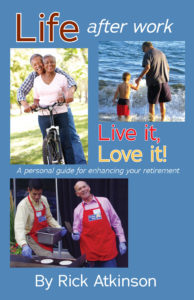5 Stages of Retirement!
Retirement is a time many boomers look forward to. Lounging around the house with a cup of coffee and your favourite book; calling up friends for tennis or pickle ball, or maybe to play cards in the evening. Ah, freedom at last!
However, retiring is not only about giving up your job and spending your days relaxing; it's also about entering one of the most exciting and challenging stages of life. The opportunities are endless; however, a successful retirement doesn't come without its hurdles. There are many considerations, such as living on a reduced income, creating a health and wellness strategy, examining, and maintaining relationships with family and friends, allocating personal time, establishing living arrangement, adopting, and adapting to different social roles, and adjusting to the eventual death of a partner, friends, and family members.
When adjusting to retirement, for many they experience five (5) distinct stages . Here is a brief description of the stages most people experience:
Stage 1: Pre-Retirement: The stage before you actually retire. It involves imagining life as a retired person. During this stage, most only focus on money. Will they have enough to finance their rudimentary plans. They tend to see retirement essentially as a vacation, and they imagine filling their days the same way they did when on vacation.
Stage 2: Full Retirement: This is leaving the job, maybe one they disliked; dropping out of the rat race and turning their back on the pressures of employment. In this stage there is a sense of freedom from the stress and responsibilities of working life. People in this stage are usually busy reconnecting with family, friends, and spouses, and spending time on hobbies and/or traveling - their days are filled the same way when on vacation. Unfortunately, vacation activities become boring - as well as expensive.
Stage 3: Disenchantment: Once the emotional high of retiring has worn off, and the honeymoon phase is over, many feel a sense of disappointment and disillusionment. Many of my clients reported asking the question; "Is this all there is?" They have spent so much time looking forward to life after work, so once it sets in, retirees are left with little to do that interests or engages them, and time begins to weigh heavily on their shoulders. Many of these retirees experience increased frustration with their lives, caught up in a vortex they cannot or will not escape.
Stage 4: Reorientation: Often considered the most challenging stage, reorientation usually occurs after retirees quickly go through their retirement to-do list, feel a lack of purpose, and begin to evaluate their retirement experience. Successful retirees take the next step. Many acquire information from people who are already living a successful retirement. For others, they attend workshops, webinars, read books and articles, and/or consult with coaches like me. What's more, successful retirees apply their information in two key ways:
- They build their own realistic and well-rounded vision of retirement.
- They create and implement a plan to make it happen!
Stage 5: Reconciliation and Stability: The final stage is settling into a life style of living their new 'job description'. It's developing and strengthening one's ability to find satisfaction in new interests and pursuits. It's adapting to one's role which may include grandparent, gardener, artist, photographer, speed walker, student, avid reader, budding novelist, etc. One's vision and subsequent actions should satisfy personal wants and needs. Remember, your vision acts as your anchor and your compass for direction and future decisions.
While not every person will experience each stage as intensely or for the same amount of time as others, most retirees will experience this process in some form once they stop working. Like with any major transition in life, retirement comes with emotions and and worries. But if you thoughtfully plan for your transition, you can help increase the quality of your retirement. It's up to you!
To help you create the best retirement you can, read my book, Life After Work: Live it, Love it! It's a personal guide for enhancing your retirement.
